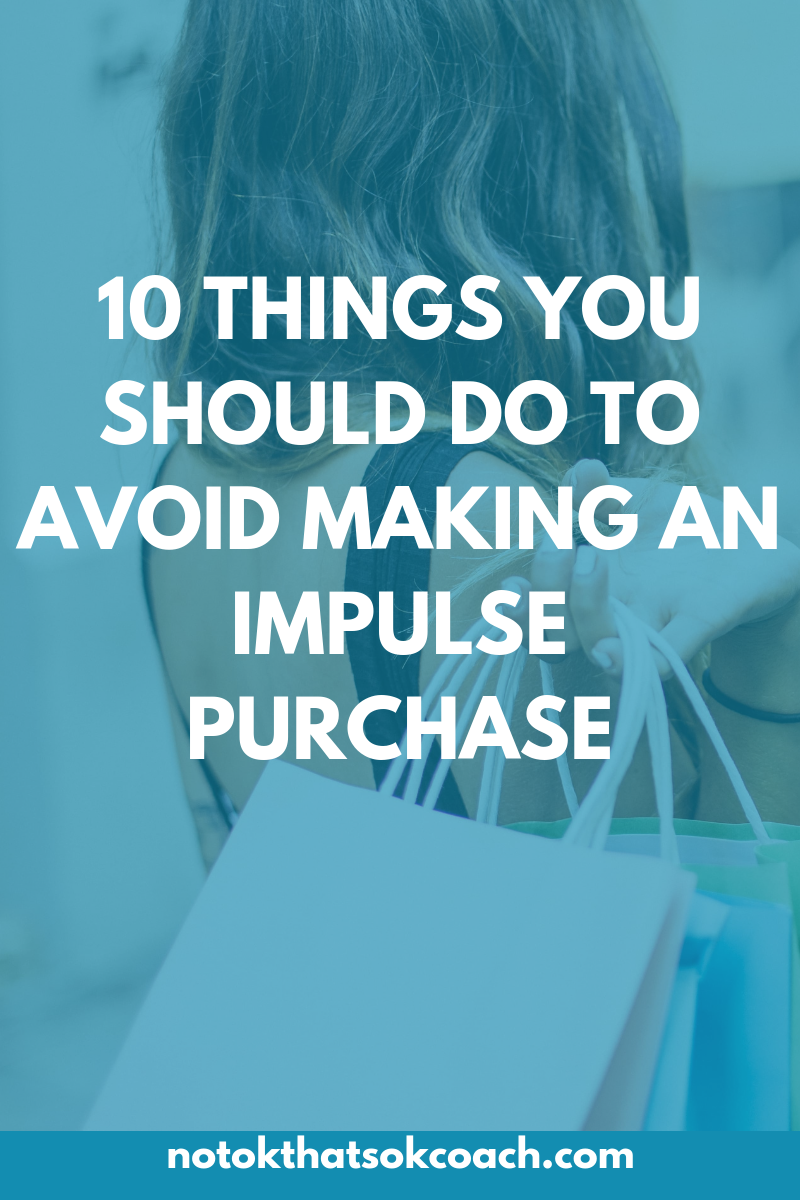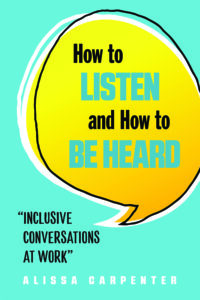This post is sponsored by Lexington Law.
According to an article on Lexington Law’s blog, in the fourth quarter of 2018, “America owed a total of $870 billion in credit card debt alone — a 5% increase from 2017.” That means that as a country, we are purchasing things that we can’t really afford. This can be for a variety of reasons, but I know that I have found myself making some serious impulse buys. Unplanned purchases that I immediately regretted and realized that I didn’t have allocated funds to pay for.
That “icky” feeling when I got home and realized that I overspent is something that really stuck with me. Over the years, I have adjusted my spending habits to help curb my impulse buying. By no means am I perfect, but I have drastically changed from buying something because it’s on sale or conveniently placed by the register to being more strategic in my spending. Let’s go over 10 things you can do to avoid making an impulse purchase and what to do if you already have and are now in a sticky financial situation.
Adjust where you shop
Whether it’s online or in person, there are stores that just scream “buy more.” The fancy lights, suggested items to add to your cart, or the all-around feeling of “I didn’t know I needed this, but now I have to have it” is real. It makes it hard to say no where you’re surrounded by feelings of yes.
I started to take note of what stores I was spending the most money in and what I bought and actually used. I spent time looking at my credit card statements and looking through my closets and drawers for things that still had tags on them. I was able to narrow down the retailers that were trouble for me and have since adjusted where and how I shop there.
For some of the big box stores, I now ask my husband to do the shopping with a list. I know that if I were to go, I might throw in a few items that we didn’t need, and I would immediately regret. For other places, I order online and either have it delivered or pick up in the store. This way I’m not wandering around buying extra things.
Find what places you tend to spend extra money and try some of the suggestions above.
Take time to think about it
The most impulsive of buys are when you see something on your way out of the store and swipe your credit card. There is no thought put into it at all and you it’s as if you’re in a hurry for them to take your money. Believe me, I’ve been there (many times)!
Instead of doing that, take the time to think about it. Leave the store, leave the item in your online cart and then decide if you really need it. Give yourself at least one night to think through it. From my experience, I usually either forget about it or it doesn’t seem as exciting the next day and I don’t wind up buying it.
Ask yourself, “Do I have an immediate use for this?”
It’s easy to buy something and think that one day you will have a use for it. Maybe I’ll have a fancy event to go to, need for a new kitchen utensil, or something else to display in your office. But really think about if you have an immediate need for it and if there is nothing else that you currently own (or could borrow) that could take its place. If the answer is not a definitive yes, put it back!
Avoid emotionally shopping
- Are you looking to put yourself in a better mood?
- Did you get in a fight with a good friend?
- Did you get a poor performance review at work?
Put down the credit card and back away! It might feel good in the moment to buy that thing and treat yourself. But that moment quickly passes, and guilt tends to sink in.
Understand the return policy
Make sure you understand the return policy for all of the items that you’ve purchased. I’ve bought things that I thought were on a great sale to realize that not only was it on sale, but it was also final purchase. I was so excited about the “bargain” that I didn’t try it on and didn’t realize that I couldn’t bring it back if it didn’t fit.
Some stores only give you a few days or weeks while some are very generous with several months. Take note if you will get your money back on your credit card or if they only issue store credit or exchanges. It’s also important to keep your receipts and I’ve found that emailing them makes it easier than keeping all the paper lying around. Don’t walk away without knowing that you can bring an item back if it doesn’t work for you.
Stick to your list
Creating and sticking to a list is much easier said than done. Especially when I go into specific stores (yes, I am talking to you Target). But when I leave and only buy things from that list, I feel so good about it.
Try to write a list before you go shopping (online or in person) and only buy the items that you need. Don’t walk down any other aisles or add things you think you might need at a later date. Stick to that list!
Don’t shop with enablers
According to a post on Lexington Law’s blog, a recent survey found almost 40% of millennials have spent money they didn’t have, going into debt just to “keep up” with their peers. This stat is not surprising as I was noticing that when I went shopping with certain friends, some would talk the sense back into me and others were enablers. When I shopped with enablers, there was no telling what I would come home with.
If there are people in your life that encourage you (or make you feel) like you have to buy more than you had anticipated, try to find another activity to do together. Or use some of the other strategies to avoid overspending. At the end of the day, it’s your credit that gets impacted by the purchase, not theirs.
Create a budget and stick to it
Take the time to create a monthly budget and stick to it. It’s easy to spend more money when you don’t know how much you have already spent or can even spend for the month. Every time you go shopping or think about buying something that wasn’t on a list, look at your finances to see if you have the funds for it.
Unsubscribe to emails
I get so many daily emails sharing about sales and promotions from some of my favorite stores. The moment I click on them, I am hooked. My mindset shifts from “I am just going to look” to “I need all of the things.” By unsubscribing to emails, I limit the temptation of even seeing what is out there.
Do your research on prices
It’s so easy to get duped in the store when you see a buy one/get one half off sign. Especially when you were only intending to buy one thing. Suddenly, you feel like you need the second thing because you don’t want to miss out on a deal. Well, that deal only makes the items 25% off and while that might be a bargain, more than likely you can get that percentage off at a later date without buying the other item that you don’t need. Before running to the register, do your research on that one item you came into the store for. Three price checking apps to check out are:
- Amazon
- ShopSavvy
- Walmart Savings Catcher
ALREADY MADE SOME IMPULSE BUYS… NOW WHAT?
Return any unused items
According to CNBC, individuals spend $5,400 a year on impulse purchases. I don’t know about you, but I don’t have that money just lying around to buy things that I don’t need. So, if you’ve already made some purchases you haven’t used or realized that you don’t need- bring them back.
Look through your closet, drawers, and anywhere else to find unused items. You will be surprised how many things you’ll find and are able to get your money back for. Don’t just let them sit there and collect dust, if you haven’t used them yet and don’t have an immediate need, it’s time for them to go.
Sell items on secondhand sites
Maybe you passed the return date, or you used something once and don’t have another need for it. Sell it! While you might not get back all of your money from the impulse purchase, you can use that money to pay off your credit card bill (not to buy something else you don’t need). Check out these places as options to sell your goods:
- Facebook yard sales
- Poshmark
- Ebay
- Craigs List
Make a commitment to adjust your mindset
The psychology behind impulse buying is about perceived status. In general, we can think that having material possessions gives us more influence and power, the more we have, the “better” we are. Even if we try to follow all the 10 things above, if we whole heartedly believe that without these items, we won’t have the status we desire, it will all fall short. Lexington Law’s blog has a great post on how to achieve status the “right” way. Some of the things addressed are how to:
- Reframe the way you think about status
- Develop a smart attitude about wealth
Understand where your credit stands and get support
It’s easy to make impulse purchases when you don’t understand the repercussions of your actions. If you have not pulled your credit report, this is something that you should do ASAP. You will want to see where you stand as well as find out your credit score. If you haven’t been paying your bills and are now finding yourself in debt, you might be surprised to find out your score. Here are some resources from Lexington Law’s blog on pulling your credit report for free.
Once you’ve pulled your credit report, you are going to want support to understand what it means and find action steps to pull up your credit score. The professionals at Lexington Law work with you to rebuild and repair your credit. Their individualized approach will not only educate you, but help you take control of your financial future.
- Cultivating Relationships - July 20, 2021
- Empowering Our People - July 13, 2021
- Finding Purpose - July 6, 2021




